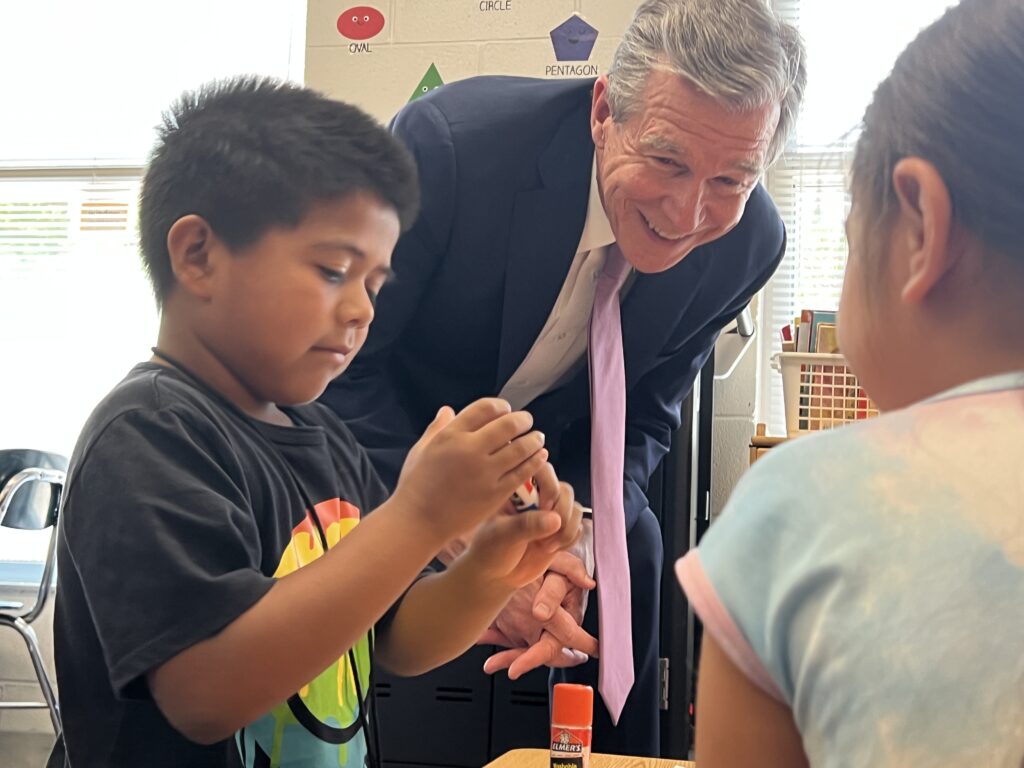Work disruptions caused by a lack of child care in 2020-21 were higher in N.C. than in 47 other states
Early Bird readers, hello again. Newcomers, welcome! If you were forwarded this email, you can sign up here to receive it every two weeks, and join our conversation on issues facing North Carolina’s young children and those who support them. If you’re already a subscriber, please help us reach more people by sharing this with your friends and co-workers interested in early childhood education.


Here at EdNC, we’re preparing for a little respite this summer. We’re packing for vacations, focusing on personal projects, and shifting to a lighter workload for the next two months. But we know that’s not the case for those of you working in early care and education.
In fact, the awareness of the importance of ECE — and urgent need for public investment — is only increasing. Last week the Annie E. Casey Foundation dropped the highly anticipated (among statistics nerds like myself) 2023 Kids Count Data Book. As my colleague Liz Bell pointed out in her article about the report’s findings, this year the report was oriented specifically around the subject of child care.
Here’s the first paragraph of the foreword to the report:
When families have accessible, affordable, quality child care, kids and parents benefit. Young children can find nurturing support and begin early learning, while their parents and caregivers are able to earn money for food, housing and other essentials. A functional child care system that meets the needs of families would ensure parents have care when and where they need it — at a reasonable cost and with family-supporting pay for child care professionals.
North Carolina was one of three states in which 16% of children under 6 years old lived in families where someone quit, changed, or refused a job because of problems with child care during 2020-2021. That’s higher than the national average of 13% and every state except Arizona and Vermont.
That same connection between child care and a family’s ability to participate in the workforce was the emphasis of a letter to Congress sent by Governor Cooper and nine other governors requesting increased federal investment in child care:
Of the many funding priorities before you, few are as critical to America’s working families as ensuring access to child care. Quality child care makes it possible for parents to work and employers to hire, all while giving young children a strong foundation to learn and thrive.
It’s clear that while the General Assembly has not expressed an intent to significantly invest in child care this session, the urgent need for that investment remains.
While Liz and I will be skipping the next issue of Early Bird during EdNC’s summer vacation, we know you’re still doing the critical work that children and families desperately need. That’s why when we come back, Liz will be visiting you in every corner of the state, and sharing your stories exclusively in Early Bird for the rest of the summer.
While she hits the road, I’ll be working behind the scenes to better understand the role our public schools play in providing a variety of early care and education before kids enter kindergarten, and mapping the flow of federal, state, and local funding for ECE. If you have something you think I should know on either front, just reply to this email!
Early Bird reads: What we’re writing
Cooper and nine other governors ask for federal child care funds as state ties for highest in 2021 job disruptions
Gov. Roy Cooper and nine other governors sent a letter to Congress on Tuesday calling for more federal funding for child care as pandemic relief funds dry up. The letter asks Congress to maintain current levels of relief funding and to increase recurring funding in the federal budget for 2024 to ensure that working families have options.
In 2020-21, 16% of North Carolina children under 6 years old lived in families where someone quit, changed, or refused a job because of problems with child care. That’s higher than the national average of 13% and every other state except Vermont and Arizona, according to a 50-state report on child well-being — the 2023 Kids Count Data Book — released Tuesday night by the Annie E. Casey Foundation.
Your take, for goodness sake: EdNC perspectives
Perspective | Child care crisis? Legislative budgets don’t move the needle
Ferrel Guillory evaluates the political realities of fighting for expanded access, availability, and affordability of early care and education. He urges the General Assembly to reconsider their budget plans, prioritizing investment in ECE.
In other early learning news: What I’m reading
It Costs $370,000 To Raise A Kid In America - From Fatherly
States are Leveraging ARPA to Move the Needle for Infants and Toddlers - From ZERO TO THREE
Creating Policies to Better Serve Diverse AANHPI Populations - From Child Trends
State(s) of Early Intervention and Early Childhood Special Education: Looking at Equity - From NIEER
Let Us Rise: How Parents and Caregivers Would Design a Permanent Child Allowance to Advance Racial and Economic Justice - From Center for the Study of Social Policy
Research & Resources: Let's talk North Carolina Pre-K
As I start my journey to learn more about the many ways our state’s public schools support early care and education, the most obvious is through housing NC Pre-K classrooms. A paper published last week provides new evidence for why NC Pre-K is a worthwhile investment.
The researchers looked at the effect of NC Pre-K funding on later academic achievement. They found the effects were “positive for all subgroups tested, and statistically significant for most.” The largest positive effects were for “children exposed to more disadvantaged environments either before or after the pre-k experience.”
Importantly, the researchers established that pre-k serves as a buffer against the negative effects of previous experiences that children have faced in their environments, and a protection against the effects of future negative experiences.
Additionally, the researchers also found “that program attendance increased average 5th grade achievement by approximately 20% of a standard deviation, and impacts were largest for children who were Hispanic or whose mothers had less than a high school education.”
This is yet another piece of strong evidence of how investing in early childhood education pays off over time. Of course we all know that early care and education supports healthy brain development, good social-emotional health, and enables families to participate in the workforce. But new evidence supporting the maintenance and expansion of these programs is always welcome.



